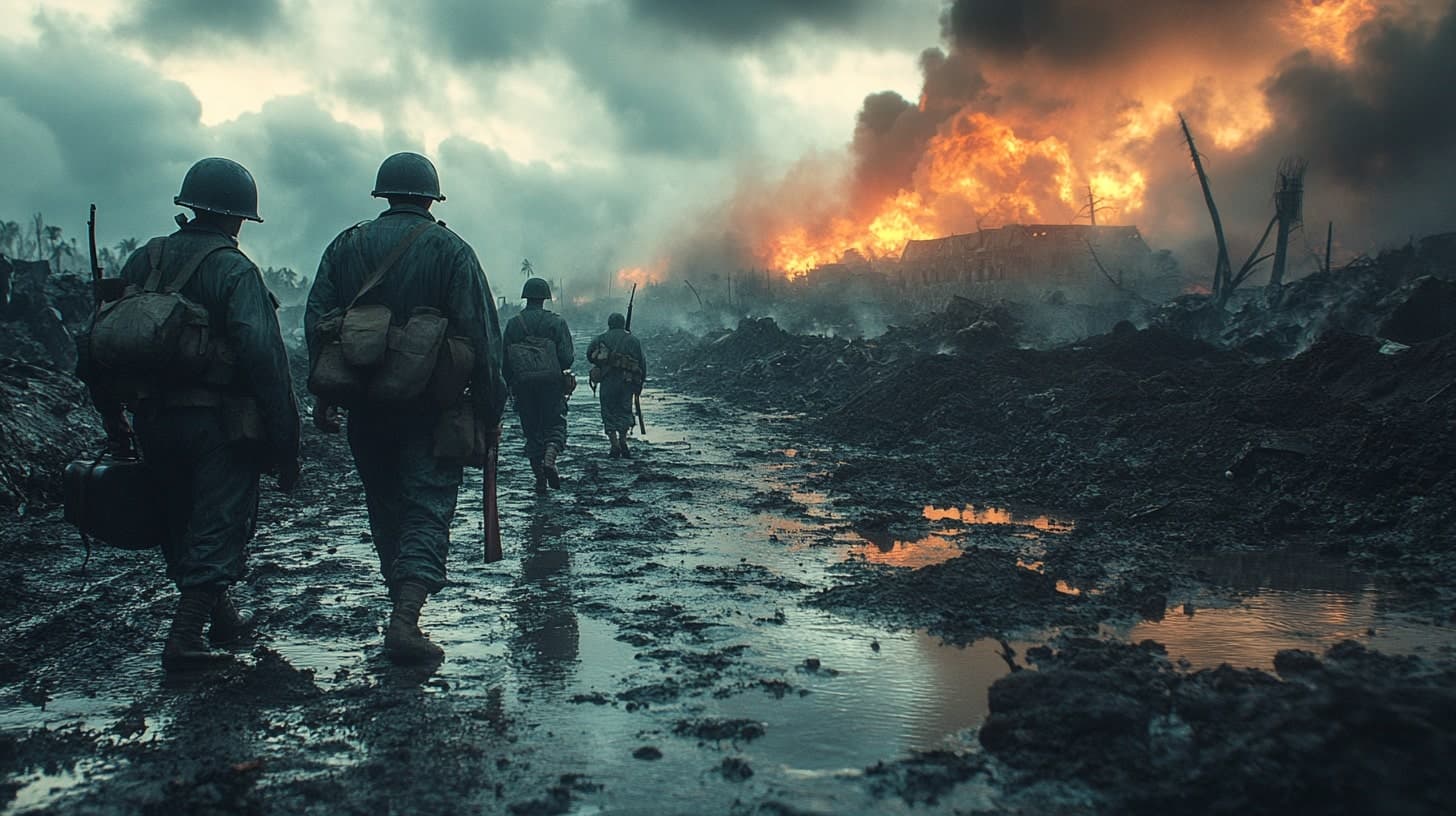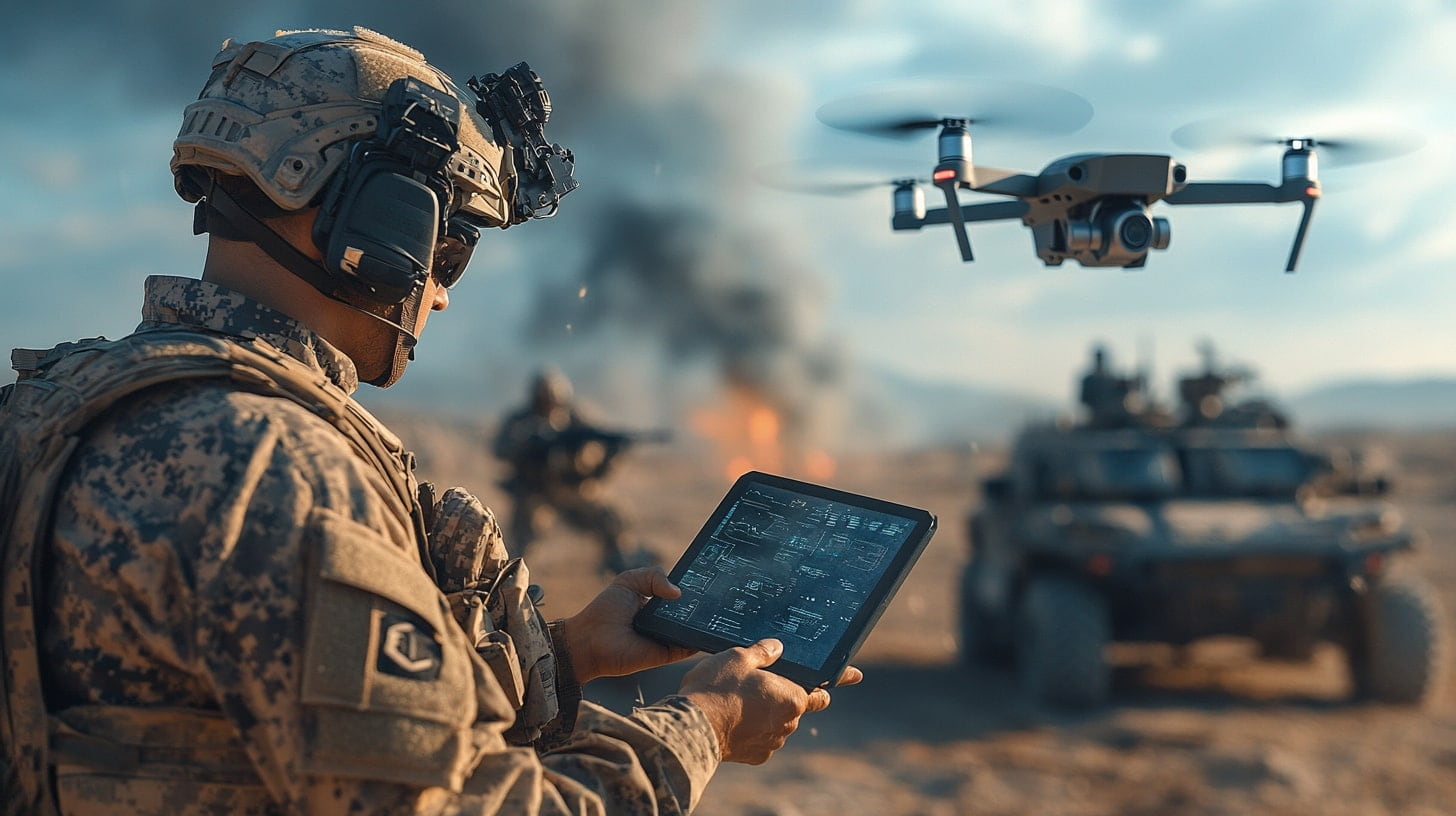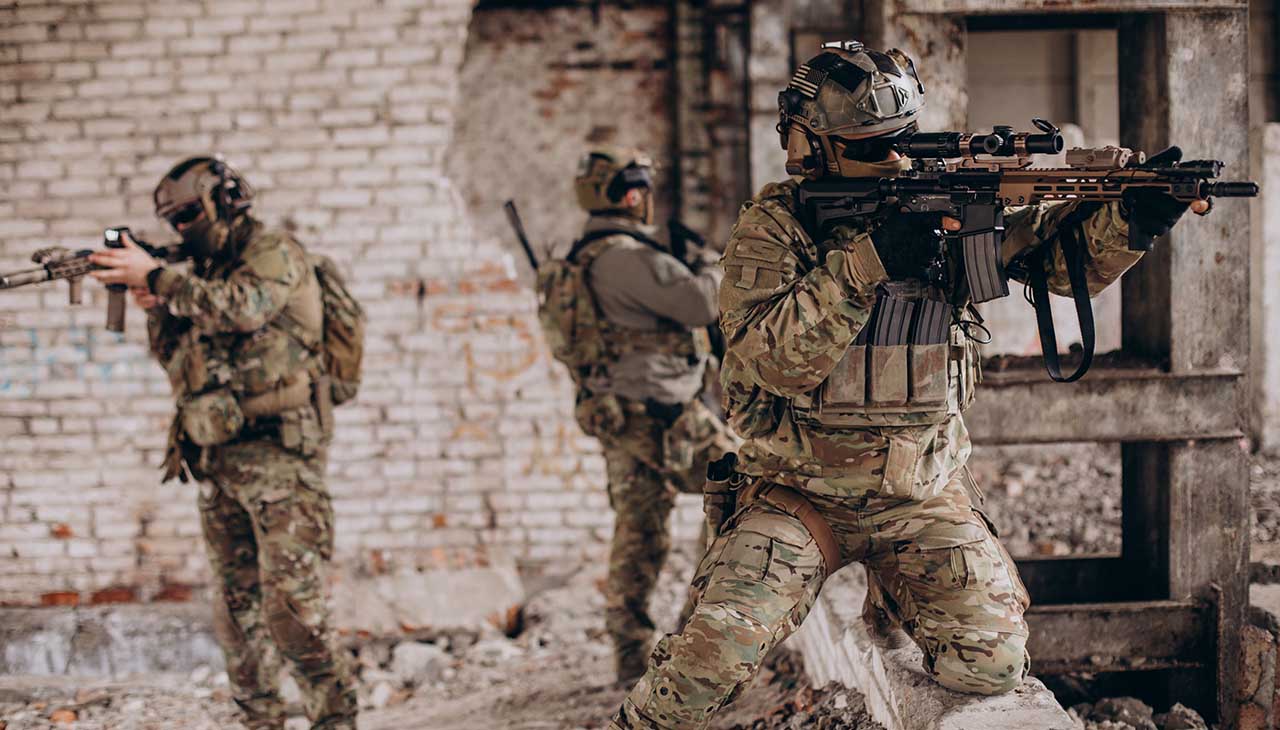Warfare’s psychological landscape is as complex and nuanced as it is crucial to understanding the dynamics of conflict. Within the theater of war, soldiers undergo profound mental and emotional transformations. The battlefield, a stage of both heroism and tragedy, leaves indelible marks on those who endure its trials. This document delves into the myriad facets of a soldier’s psychological experiences — from the adrenaline-fueled rush of combat to the silent echoes of post-war readjustment. Through exploring the psychological conditioning soldiers undergo, the coping mechanisms they employ, and the ramifications of their service, we aim to build a bridge of empathy and understanding between civilian society and military personnel who have experienced the harrowing realities of war.
Psychological Effects of Combat on Soldiers
Post-Traumatic Stress Disorder (PTSD) and Its Impact
The specter of post-traumatic stress disorder (PTSD) looms large in the aftermath of combat, with many soldiers carrying the burdens of war long after leaving the battlefield. PTSD manifests through a host of symptoms: haunting flashbacks, severe anxiety, uncontrollable thoughts about the traumatic event, and a persistent state of heightened alertness. These symptoms can significantly impair daily functioning and social interactions, causing soldiers to relive their trauma repeatedly, often in debilitating ways.
Emotional and Psychological Toll of Engaging in Warfare
Engagement in warfare exacts a severe emotional and psychological toll on service members. The necessity to maintain a constant state of vigilance and readiness can lead to chronic stress, while the moral injuries inflicted by the loss of comrades or the necessity to harm others can cause deep-seated guilt and sorrow. These intense emotions may not always be visible on the surface but can lead to substantial deterioration of one’s mental health over time, affecting not only the soldiers themselves but also their families and communities.
Coping Mechanisms and Support Systems for Soldiers
To navigate the psychological aftermath of conflict, soldiers often turn to various coping mechanisms and support systems. These can range from professional counseling and therapy—such as cognitive-behavioral therapy or eye movement desensitization and reprocessing—to peer support groups where sharing experiences and feelings with fellow veterans can be therapeutic. Additionally, engaging in physical activities, mindfulness practices, and creative endeavors can provide outlets for stress and avenues for expression. Support from family, friends, and dedicated veterans’ organizations also plays a critical role in a soldier’s readjustment and recovery.
The Combat Mindset
Factors Contributing to the Development of the Combat Mindset
The combat mindset is a psychological framework woven from necessity and survival, shaped by factors that prepare soldiers for the realities of conflict. Rigorous training, discipline, and the development of a shared sense of purpose are foundational in building this mindset. Moreover, the transformation of civilians into soldiers is marked by processes that reinforce obedience, quick decision-making, and a detachment from the civilian sensibility of violence. This mental fortitude is further bolstered by camaraderie and the ethos of collective effort within military units, creating a bond that drives soldiers to perform under extreme conditions.
Mental Resilience and Adaptability in High-Stress Environments
To withstand the unpredictability and pressures of warfare, soldiers develop a remarkable degree of mental resilience and adaptability. This psychological armor not only shields them from the immediate hazards of combat but also enables them to cope with the rigors of prolonged exposure to high-risk environments. Mental resilience is cultivated through repeated exposure to stress and learning from challenging experiences, while adaptability is honed through versatile training that prepares soldiers for a variety of scenarios. These attributes are crucial for maintaining focus, effectiveness, and clarity of mind when faced with life-or-death decisions.
Training and Conditioning for Combat Effectiveness
Achieving combat effectiveness requires extensive training and conditioning, tailored to prepare soldiers for the harsh psychological and physical demands of warfare. The training regimen encompasses tactical skills, weapon proficiency, and survival strategies, yet it also systematically conditions soldiers to manage their fears and anxieties. Simulations and live exercises are designed to acclimate soldiers to the sensory overload and chaos of combat, thereby ingraining adaptive responses and automatic reflexes suited for the battlefield. This rigorous preparation is not solely aimed at technical skillfulness but also at fortifying the inner resilience necessary to face and overcome the multifaceted challenges of modern combat.
Psychological Warfare as a Strategic Tool
Manipulation of Enemy Perceptions and Behaviors
Psychological warfare extends beyond the physical battlefield, aiming to manipulate the perceptions and behaviors of the enemy. Through strategies that target the adversary’s morale, confidence, and decision-making processes, this form of warfare seeks to undermine their willingness to fight. Disseminating misinformation, fostering uncertainty, and exaggerating one’s own military capabilities are all tactics designed to weaken the enemy’s psychological strength, often leading to a diminished combat effectiveness or even retreat without the need for direct confrontation.
Propaganda, Deception, and Information Warfare
Propaganda and deception play pivotal roles in psychological warfare, shaping the narrative to suit strategic interests and casting doubt on the enemy’s assertions and intentions. Modern campaigns often extend to information warfare in cyberspace, where hackers and state-sponsored actors engage in the manipulation of information and distribution of fake news. This digital battleground enables rapid dissemination of propaganda, creating a fertile ground for sowing confusion and discord within enemy ranks and civilian populations alike.
Case Studies and Historical Examples of Effective Psychological Warfare Tactics
Historically, psychological warfare has proven to be an effective tactical instrument in various conflicts. For instance, during World War II, Operation Fortitude successfully deceived the Axis powers about the location of the Allied invasion of Europe. The use of inflatable tanks and fake radio traffic created the illusion of a massive army group, leading to the misallocation of German resources. Another example is the use of Tokyo Rose broadcasts where the intent was to demoralize American troops in the Pacific through disheartening messages and music. These case studies underscore the significance of psychological operations as a critical element of military strategy.






Leave a Reply